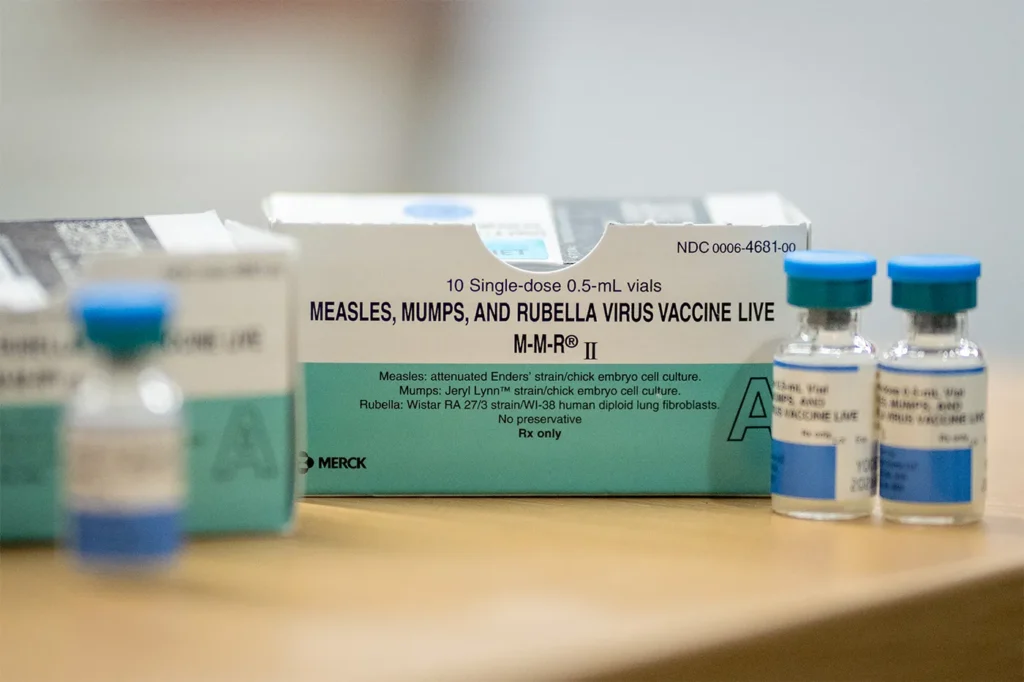If you’re interested in exploring the administrative side of the healthcare industry, you may wonder about the differences between healthcare management vs. healthcare leadership. What sets these roles apart? What are their core duties? What education is required for each career path?
Generally, both of these roles fall under the umbrella of healthcare administration. Healthcare administrators are responsible for coordinating and supervising all the complex activities involved in delivering quality patient care. These roles can range from directors and executives at the highest level of a healthcare facility to department managers and supervisors.
If you’re interested in working in healthcare administration but unsure what role you hope to take on, here’s an overview of healthcare management, healthcare leadership, the differences in these career paths, and why you should consider enrolling in a Doctor of Medical Science in Healthcare Leadership (DMSc) program.

Career Guide
Everything You Need to Know About Becoming a Leader in Healthcare

What Is Healthcare Management?
According to Robert M. Baginski, MD, program director of the Doctor of Medical Science in Healthcare Leadership at the Bouvé College of Health Sciences, “management deals with the day-to-day operations of healthcare.” From private practices to clinics to hospitals, healthcare facilities juggle a variety of administrative processes that keep things running smoothly. Healthcare management is in charge of coordinating all these moving parts.
From a financial standpoint, healthcare managers oversee billing, budgets, resources, and other accounting needs. They also communicate with insurers and execute policies and procedures to make sure the facility is in compliance with regulatory standards. As administrators, they often make decisions about recruitment, staffing, and employee performance. The job scope, however, often depends on the size and organizational structure of the facility
Due to the nature of these positions, healthcare management is often rewarded financially. The U.S. Bureau of Labor Statistics (BLS) reported an annual median wage of $110,680 for medical and health services managers, with the highest 10 percent earning more than $216,750.
What Is Healthcare Leadership?
Healthcare leadership, while an important component of a healthcare facility’s operations, takes on a more focused role in strategic planning. “Healthcare leadership is about identifying where to take healthcare in the future,” says Baginski. Therefore, leadership roles require a solid understanding of daily operating procedures to develop strategies to improve healthcare processes and outcomes.
Effective leadership is about looking at the big picture, creating a vision for the organization, and setting goals to optimize patient care delivery. For example, leaders may evaluate emerging trends and technologies or decide which resources to integrate into facility operations. Leaders should be weary, however, of being reactionary rather than proactive.
“A leader should have a clear vision of where they would like to go,” says Baginski. “Then they need to be able to lead others toward that vision.”
With such a pivotal role in healthcare, top executives in the industry command an annual median wage of $154,650, and executives in related professional, scientific, and technical services earn a median wage of over $200,00 annually, according to the BLS.
Key Differences in Healthcare Career Paths
If you’re still unsure whether to pursue a career in healthcare management or healthcare leadership, consider how each path aligns with your career goals and interests. Here are two key differences to think about as you explore open positions in these specializations.
Role in Healthcare
Leaders and managers have complementary roles, both of which are invaluable to healthcare organizations. For example, imagine a healthcare facility as a ship. Managers oversee the crew, evaluate cargo, and steer the ship, while leaders evaluate all the conditions influencing the voyage and chart the course. If conditions change, leaders have to adapt and formulate new plans, while managers ensure these changes are implemented effectively. In other words, leadership is a strategist role, while management focuses on execution.
When it comes to choosing what role you hope to take on in healthcare, consider asking yourself questions about your skills, professional goals, and personal interests. If you’re interested in healthcare leadership, ask yourself:
- Do you like taking a high-level view of systems/organizations and figuring out how all the moving parts can work together more efficiently?
- Are you an analytical thinker who enjoys planning, researching, and problem-solving?
- Are you excited by the idea of developing and testing new policies?
- Are you skilled at managing stakeholders and collaborating with other decision-makers?
These prompts directly correlate to not only the responsibilities and duties of healthcare leadership, but also speaks to the overall goals of these positions. Healthcare leadership offers vast opportunities for career growth and skill development, especially if your goal is to play a role in shaping the future.
Healthcare management, on the other hand, requires slightly different skill sets and goals within the industry. Prospective healthcare managers should ask themselves:
- Do you prefer to have a clear roadmap and guidance for coordinating operations?
- Are you more interested in the functional everyday details of the business than the long-term strategy?
- Do you value direct engagement with the workforce?
- Do you enjoy problem-solving on a more procedural level?
While these specializations have different roles within healthcare, it’s essential that professionals pursuing a career in healthcare leadership obtain a thorough understanding of both management and leadership within the industry.
“A leader needs to have a complete understanding of management or else they can’t make clear plans,” says Baginski. “The worst kind of leader is one who says, ‘I want everyone to go ahead and see five more patients an hour,’ without understanding that’s physically impossible. So a leader needs a firm understanding of management first and foremost.”
Educational Requirements
Healthcare management and leadership education is continually evolving to keep up with industry demands and emerging trends. Traditionally, healthcare administration jobs are more likely held by physicians and executives exclusively trained in management. However, colleges, like Bouvé College of Health Sciences, have developed highly-specialized programs to train leaders from diverse healthcare backgrounds to navigate challenges ranging from budgetary constraints, to staffing shortages, to digital trends.
Those interested in healthcare management traditionally obtain a Master of Health Administration (MHA) degree. A typical MHA program offers a strong foundation in organizational leadership, health information systems, ethics, law, financial accounting, and healthcare economics. These programs also emphasize soft skills that are essential for handling all the interpersonal aspects of management.
Since healthcare leadership is still a younger discipline in the field, it requires a fairly new degree. A Doctor of Medical Science in Healthcare Leadership degree touches on the same areas of study as an MHA but also offers an in-depth look at leadership methods, healthcare informatics, advocacy, organizational success metrics, research development, law, and complementary systems like pharmaceuticals and public health.
MHA and DMSc degrees can provide pathways to leadership if you don’t have a Doctor of Medicine (MD) degree. “That’s why we created this degree,” says Baginski. “We wanted to give healthcare professionals the credentials and education needed to move ahead in their career.”
Consider Earning a Doctor of Medical Science in Healthcare Leadership
Effective leadership is the backbone of healthcare. Not only do leaders provide the guidance and support necessary for healthcare workers, but their day-to-day decisions also determine an organization’s ability to embrace innovation, overcome obstacles, and make a positive impact on patient care.
With so many different options for advancement, it can be challenging to decide which credentials and educational paths to pursue. If you’re clinically trained in a relevant field, but don’t have a medical degree, earning a Doctor of Medical Science in Healthcare Leadership is one of the most time- and cost-efficient ways to expand your career opportunities.
In a DMSc program, healthcare professionals learn to evaluate the many clinical, operational, and strategic factors that contribute to organizational success. Northeastern University’s Doctor of Medical Science in Healthcare Leadership degree program at the Bouvé College of Health Sciences prepares professionals from a range of healthcare backgrounds to advance their careers in healthcare leadership, community engagement, medical education, and more.
Download Our Free Healthcare Leadership Career Guide

Career Guide
Everything You Need to Know About Becoming a Leader in Healthcare





